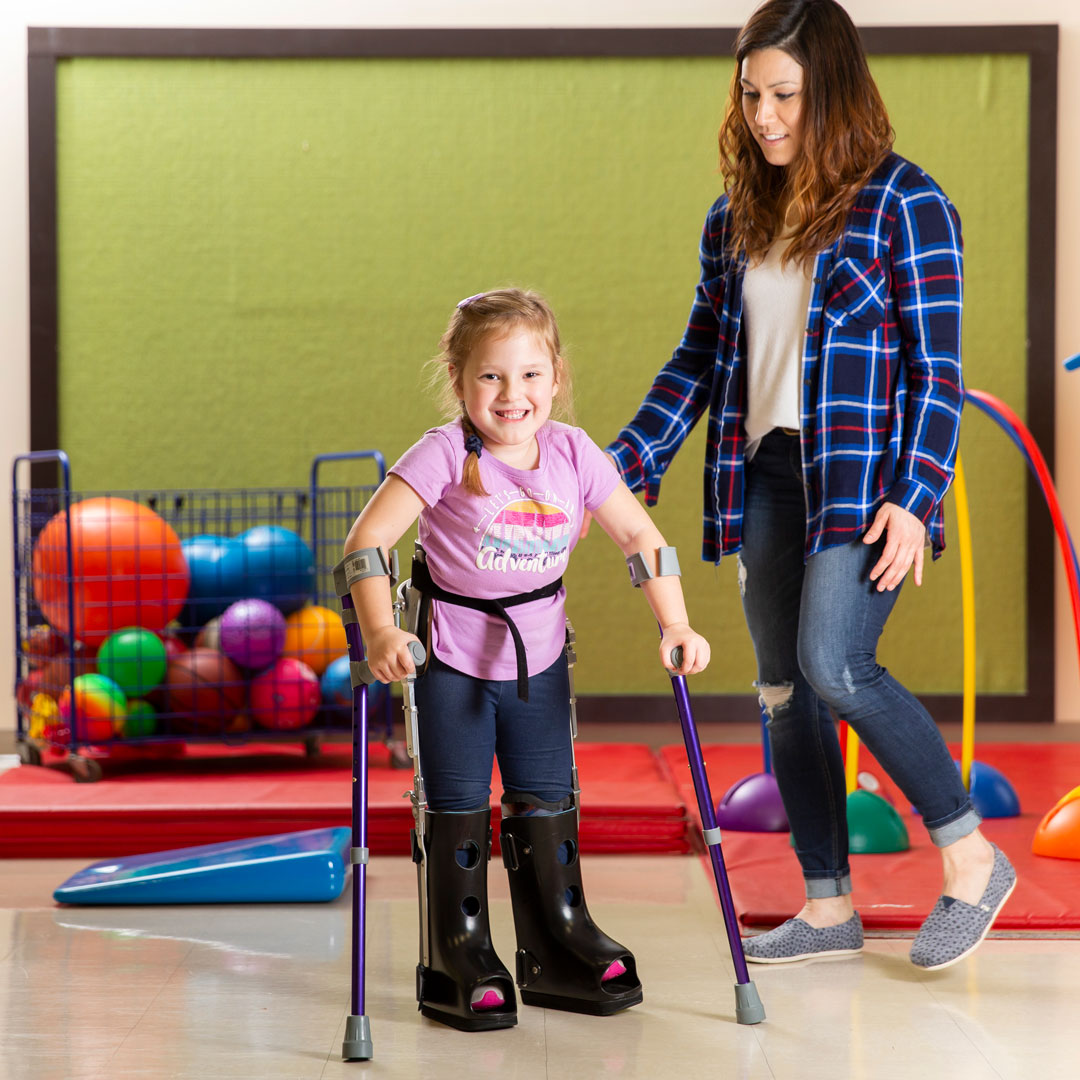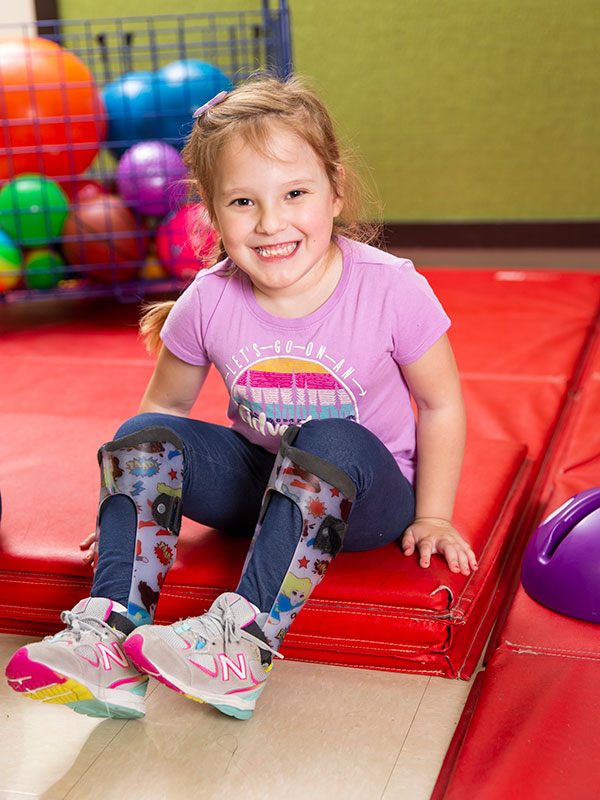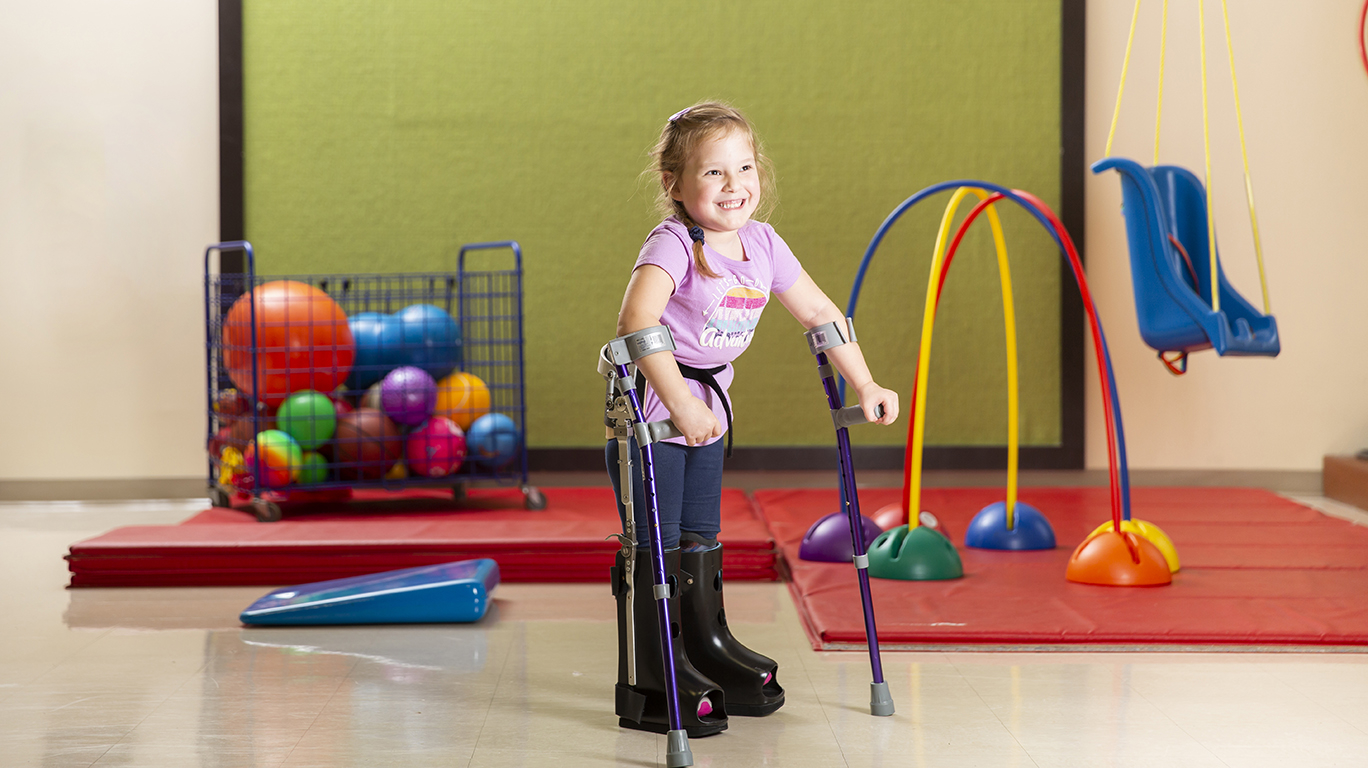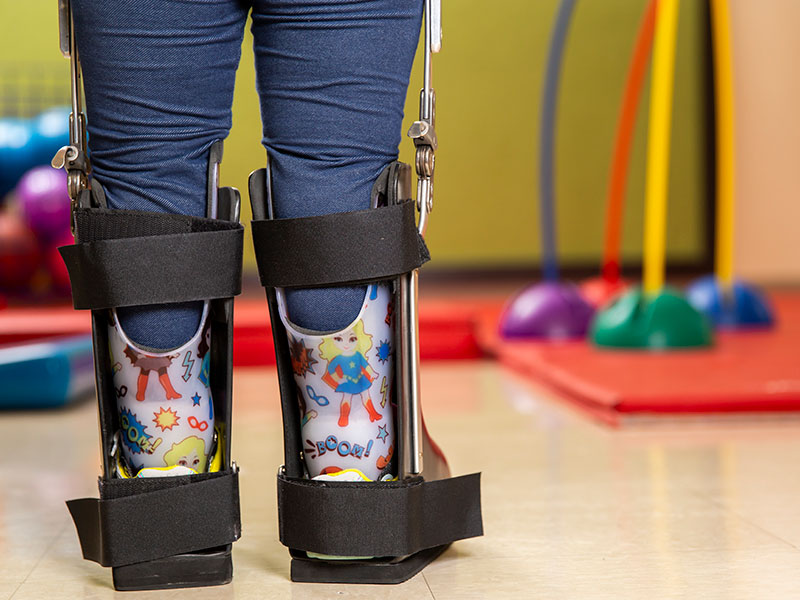You’re four years old, the same age Willow Tharp is now. You like purple, unicorns, and riding your tricycle. You’re four years old, but you’re more familiar with an operating room than most adults will be in their lifetime.

Terri Tharp is a mother who is too familiar with the long hours of waiting through her child’s nine operations. Those hours have shifted her priorities in a way nothing else could.
Expecting parents know life will throw curve-balls at their children. Life does it to everyone. But doctors diagnosed little Willow with a condition called spina bifida while she was still in utero. Terri, a physical therapist, realized their girl would need to be especially tough.
Spina bifida occurs during a baby’s development when the spine and spinal cord don’t form properly. This diagnosis comes with a host of potential risk factors, and reaching new developmental milestones becomes a battle hard-fought by children with spina bifida.
The Tharp family appreciates the teamwork that goes into turning Willow’s challenges into wins. Liane Meadors has been on Willow’s team since the start. After years of traveling to Little Rock to receive physical therapy from Liane, the Tharp family relies on her. So when Terri realized Willow was not getting thorough treatment from their orthotic group, she took Liane advice and called the team at Snell Prosthetics & Orthotics.
“The service at Snell is 10 times better than we’ve had before,” said Terri.
“Other ortho groups don’t have the attention to detail it takes to cater to kids. It just takes a different kind of service to handle pediatric cases.”
Regular physical therapy and doctors appointments have given Willow people skills aplenty. She’s silly and spunky and already dreaming of being a neurologist to help other kids like her.
Reciprocating gait orthosis, or RGOs, are full-body orthotic devices that make it possible for patients with spina bifida to imitate the natural physiological rotation during walking. Willow’s pair is new, and it’s already improving her gait. The physical therapy required to use RGOs is very taxing on the wearer, so a strong support system is crucial.
“When she got her RGOs, there was a whole crowd of people around her, just there to watch her try them,” Terri said. “They cheered her on, it was a big deal. They made her feel like a celebrity.
“They love her at the Snell office, they know Willow. They may only see her once every six months, but they know her,” said Terri.
 Terri is self-admittedly particular when it comes to choosing providers for her daughter, and she’s relieved to know Willow’s future is in good hands with Beth at Snell.
Terri is self-admittedly particular when it comes to choosing providers for her daughter, and she’s relieved to know Willow’s future is in good hands with Beth at Snell.
“Beth is like magic,” Terri said. “She’s already making room for Willow’s growth, and she’s planning ahead for it. Our turnaround time between braces is pretty impressive.
“She’s able to walk more naturally, and with fewer deviations in her gait,” said Terri. “She’s young, so as much as we can straighten her out now, the more naturally and efficiently she’ll be able to walk in the future.”
Willow uses a few methods to increase her mobility. She has a wheelchair, as well as the RGO she uses to stand on her own. She loves being carried by her mom and her dad. But she really loves to practice walking.
“I like to try to go fast! One day I’ll be as fast as Daddy,” said Willow.
Willow adores people, especially her parents. And even at her young age, Willow is her mother’s hero.
“She knows she’s different, but that’s never been something that’s bothered her. It doesn’t matter to her, and that makes me super proud.”
“In fact, she knows more people in town than I do. We’ll pass someone and they’ll say ‘Hey, Willow!’ and I’ll just have no idea who they are,” Terri laughed.
Terri says it’s not always easy to accept the hard days, but when they come, she finds encouragement knowing their family’s being cheered on by their network of family, friends, and doctors.






